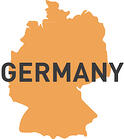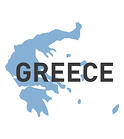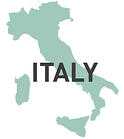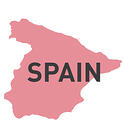With a slew of key elections on the horizon, 2015 will be a crucial year for Europe. It’s been seven years since the global financial crisis, and five years since the Greek crisis. Have conditions in Europe improved?
The modest economic upturn seems to have lost its momentum. While current data suggests growth is marginally positive in the euro zone overall, it is still not enough to get people back to work, or to dispel deflation fears. Election cycles become more dangerous the longer growth remains insufficient and the longer people's quality of life feels worse.
As we look into 2015, it appears that economic risks are skewed to the downside—further deterioration in Russia, or any disappointment in global growth could push the euro zone into renewed recession. We see 2015 as a race between fragile economic recovery and the potentially dangerous politics across the region – and it is shaping up to be a close contest.
Ingredients needed for sufficient cyclical improvement:
- A sharply weaker euro to help lift net trade & growth, if supported by strong global demand
- Any reduction in overall geopolitical risk to boost business and consumer confidence
- Less fiscal consolidation across Europe to support growth, if only marginally
- As a follow-on to this year’s Asset Quality Review and bank stress tests, banks which are better able and more willing to extend credit
Prospects for crisis flare-up driven by politics:
The recent success of the anti-euro Alternative for Deutschland party (AfD) in three  regional elections will constrain Merkel’s maneuverability going forward and limit any perceived generosity toward the debtor countries.
regional elections will constrain Merkel’s maneuverability going forward and limit any perceived generosity toward the debtor countries.

Hollande, already desperately unpopular, is suffering mounting criticism since he publicly split with Prime Minister Valls. With the French economy stagnant and the EU Commission critical of France’s plans to delay further budget consolidation, we’re unlikely to see meaningful policy progress or reform. The far-right National Front party, led by Marine Le Pen, is leading in the polls for the 2017 presidential election.
 There are major questions about whether Prime Minister Samaras’ coalition will be able to muster enough votes to push its presidential candidate through in February, precipitating a general parliamentary election. With Syriza leading in the polls, many will fret about what to expect. Will it be the Syriza party of 2012 that threatened euro exit and debt default or will they get the more mainstream Syriza, now calling for renegotiating the country’s bailout, cutting taxes and restoring benefits to pensioners.
There are major questions about whether Prime Minister Samaras’ coalition will be able to muster enough votes to push its presidential candidate through in February, precipitating a general parliamentary election. With Syriza leading in the polls, many will fret about what to expect. Will it be the Syriza party of 2012 that threatened euro exit and debt default or will they get the more mainstream Syriza, now calling for renegotiating the country’s bailout, cutting taxes and restoring benefits to pensioners.
 Prime Minister Renzi initially thought he was leading the country towards recovery, but now finds himself in seemingly never-ending recession. National strikes and public protests are increasing and outspoken activist Beppe Grillo is gaining traction in petitioning to bring back the lira.
Prime Minister Renzi initially thought he was leading the country towards recovery, but now finds himself in seemingly never-ending recession. National strikes and public protests are increasing and outspoken activist Beppe Grillo is gaining traction in petitioning to bring back the lira.
 Upcoming 2015 elections see Prime Minister Rajoy’s Popular Party going head-to-head with the Socialist party now led by Pedro Sanchez. But the real powerhouse is the left-wing Podemos party, led by Pablo Iglesias. For the last few years, some have wondered why Spain didn’t have a protest party—now they do and they are leading in national polls. PM Rajoy is quickly giving away fiscal goodies in the 2015 budget, including reductions in corporate and personal income tax. But voters inundated with wave after wave of scandal and arrests (as corruption is unearthed across both main parties and across all levels of government) are increasingly attracted to Podemos.
Upcoming 2015 elections see Prime Minister Rajoy’s Popular Party going head-to-head with the Socialist party now led by Pedro Sanchez. But the real powerhouse is the left-wing Podemos party, led by Pablo Iglesias. For the last few years, some have wondered why Spain didn’t have a protest party—now they do and they are leading in national polls. PM Rajoy is quickly giving away fiscal goodies in the 2015 budget, including reductions in corporate and personal income tax. But voters inundated with wave after wave of scandal and arrests (as corruption is unearthed across both main parties and across all levels of government) are increasingly attracted to Podemos.
 The 2015 elections may produce an ungovernable result, similar to Italy’s hung parliament in 2013. This would jeopardize Portugal’s position as a “good student” of the Troika (the European Commission, International Monetary Fund and European Central Bank) and would push investors to demand a higher credit risk premium for lending to this country.
The 2015 elections may produce an ungovernable result, similar to Italy’s hung parliament in 2013. This would jeopardize Portugal’s position as a “good student” of the Troika (the European Commission, International Monetary Fund and European Central Bank) and would push investors to demand a higher credit risk premium for lending to this country.
MALR012604
This blog post is provided for informational purposes only and should not be construed as investment advice. Any opinions or forecasts contained herein reflect the
subjective judgments and assumptions of the authors only and do not necessarily reflect the views of Loomis, Sayles & Company, L.P. Information, including
that obtained from outside sources, is believed to be correct, but Loomis Sayles cannot guarantee its accuracy. This material cannot be copied, reproduced or
redistributed without authorization. This information is subject to change at any time without notice. Market conditions are extremely fluid and change frequently.






 Prime Minister Renzi initially thought he was leading the country towards recovery, but now finds himself in seemingly never-ending recession. National strikes and public protests are increasing and outspoken activist Beppe Grillo is gaining traction in petitioning to bring back the lira.
Prime Minister Renzi initially thought he was leading the country towards recovery, but now finds himself in seemingly never-ending recession. National strikes and public protests are increasing and outspoken activist Beppe Grillo is gaining traction in petitioning to bring back the lira.  Upcoming 2015 elections see Prime Minister Rajoy’s Popular Party going head-to-head with the Socialist party now led by Pedro Sanchez. But the real powerhouse is the left-wing Podemos party, led by Pablo Iglesias. For the last few years, some have wondered why Spain didn’t have a protest party—now they do and they are leading in national polls. PM Rajoy is quickly giving away fiscal goodies in the 2015 budget, including reductions in corporate and personal income tax. But voters inundated with wave after wave of scandal and arrests (as corruption is unearthed across both main parties and across all levels of government) are increasingly attracted to Podemos.
Upcoming 2015 elections see Prime Minister Rajoy’s Popular Party going head-to-head with the Socialist party now led by Pedro Sanchez. But the real powerhouse is the left-wing Podemos party, led by Pablo Iglesias. For the last few years, some have wondered why Spain didn’t have a protest party—now they do and they are leading in national polls. PM Rajoy is quickly giving away fiscal goodies in the 2015 budget, including reductions in corporate and personal income tax. But voters inundated with wave after wave of scandal and arrests (as corruption is unearthed across both main parties and across all levels of government) are increasingly attracted to Podemos.
